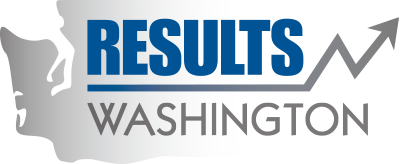Archived: Students entering public higher education who access online learning (online and hybrid courses) in public community and technical colleges
Data source: State Board for Community and Technical Colleges' (SBCTC) Data Warehouse
Information not available.
Online education is key to extending the reach of educational attainment in Washington. Online education makes it more convenient for working adults to pursue certificates and degrees. It erases barriers of time and distance, can decrease textbook and travel costs, and increases flexibility and choice for busy learners. In our digital, interactive world, online learning allows students to learn anytime, anywhere -- in the comfort of their own homes, on campus or on the road. We manage a suite of system-wide teaching and learning tools to support online education. This includes a learning management system, a cloud-based lecture capture service, a captioning service to increase the accessibility of online video,and a webinar tool. We also host the Western eTutoring Consortium, a tutoring platform allowing tutors to work with students in real time or in a question and answer format online. Additionally, SBCTC eLearning partners with the Washington State Library to fund all system college libraries who participate in Question Point, a global reference-librarian consortium.
We provide a number of system-wide teaching and learning tools including: Canvas (a learning management system), Tegrity (a cloud-based lecture capture service) and Collaborate (a web conferencing tool). Our Open Course Library (OCL) provides free or reduces-priced textbooks for 81of the highest-enrolled courses (OCL textbooks cost $30 or less), while equipping faculty with high quality materials. We are providing training to colleges on how to use these resources.
- We are facilitating, supporting and participating in system-wide efforts to make online learning more accessible for students with disabilities.
- We support and advocate for open educational resources policies and initiatives in the community and technical colleges by prioritizing practices designed to increase access to free or affordable resources and eLearning tools for system faculty, staff and students.
- We support a “Direct Course Sharing” system for use by colleges partnering with each other to offer a course or program and to share it with other colleges.
- We provide training opportunities in online education such as Quality Matters (an instructional design program for online courses using a rubric and peer-review process).
- We support flexible, competency-based approaches to online learning by identifying digital credentialing strategies tied to workforce needs.
- Take advantage of online learning opportunities yourself.
- Understand that online education is a credible public instruction model with outcomes for learners equal to face-to-face instruction.
- Provide feedback for the new policies and applications developed for online education.
